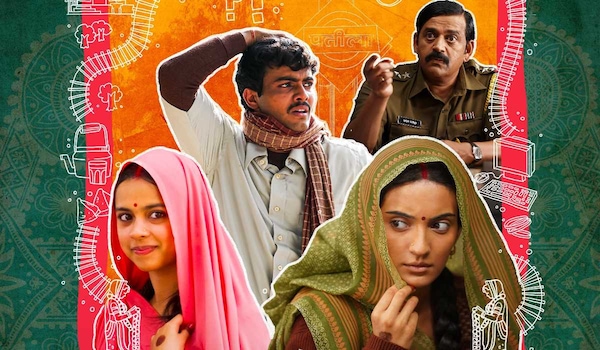Laapataa Ladies writer Biplab Goswami addresses plagiarism accusations: 'Registered in 2014, our story is 100% original'
Laapataa Ladies writer Biplab Goswami denies plagiarism claims, stating his story was registered in 2014 and is fully original, despite comparisons to Burqa City and a 1999 Hindi telefilm.

Last Updated: 06.54 PM, Apr 05, 2025
After Laapataa Ladies was compared to the 2019 Arabic short film Burqa City in several online discussions, the story's writer, Biplab Goswami, has released a lengthy and strongly worded statement in which he denies the accusations of plagiarism and asserts that his story was originally written.
About Laapataa Ladies and its success
Laapataa Ladies is the humorous and touching story of two brides who are accidentally switched on a train in rural India. The story follows Deepak, one of the grooms, as he sets out to discover his true wife. Kiran Rao directed the film and Aamir Khan produced it. Officially represented India in the 2025 Academy Awards in the International Feature category, the film has received numerous accolades since its March 1, 2024, release for its wit, societal criticism, and genuine storytelling.
A video comparing the film to Fabrice Bracq's short film Burqa City went viral, though, and the film has since been under criticism. Because every woman in the made-up Middle Eastern nation wears the same burqa, the protagonist of Burqa City—a newlywed man—inadvertently takes home the wrong bride. Claims of plagiarism were levelled against the creators of Laapataa Ladies as viewers saw similarities between the two stories, particularly in regard to sequences depicting a veiled bride and mistaken identification.
Biplab Goswami clarifies origin and timeline of his story
Biplab Goswami addressed these accusations by saying that he had the idea for his story and had it officially registered long before Burqa City came out. For a long time, the script for 'Laapataa Ladies' was under development. "I first registered a detailed synopsis under the working title Two Brides with the Screenwriters Association on July 3, 2014," he said. "This synopsis already included the idea of a groom accidentally bringing home the wrong bride because of her veil and a scene where he goes to the police station with a photo of the veiled bride — a scene that played out with humour and irony."
Along with being named Two Brides in his full-length script, Goswami stressed that it was entered in the Cinestaan Storytellers Competition in June 2018 and placed second the same year. "The story, the characters, the dialogues, the situations — all stem from years of immersive research into rural gender dynamics, patriarchy, and societal pressures," he continued. "These allegations are not only baseless but deeply hurtful. They undermine my labour of love and the hard work of an entire team that believed in telling a meaningful, original story."
Use of veil and mistaken identity as a classic device
He continued by stating that using disguises or veils to deceive the audience into believing someone else is someone else is a well-established storytelling technique. Shakespeare, Alexandre Dumas, and Rabindranath Tagore are among the writers who have employed this strategy. Laapataa Ladies uses it in a new way, nevertheless, by grounding it in the sociocultural realities of India. They took full creative control of the story's tone, narrative structure, and underlying themes.
In a related but distinct assertion, director Ananth Mahadevan recently implied that his 1999 Hindi telefilm Ghunghat Ke Pat Khol was comparable to Laapataa Ladies. This has sparked further controversy. In both stories, the identity of the bride, who is wearing a veil, causes some uncertainty until a revelation occurs at the police station. Like the Burqa City allegations, the Laapataa Ladies have denied the allegations and have not released a joint statement apart from Goswami's.
Many in the business and public are eagerly anticipating a reaction from Kiran Rao and Khan as the argument gains momentum online. At the same time, Biplab Goswami's statement is an impassioned plea to acknowledge the work and honesty that went into making one of the most talked-about films of 2024.
Final word
"Our story, characters, and dialogues are 100% original," Goswami said. "Any allegations of plagiarism are completely untrue."

